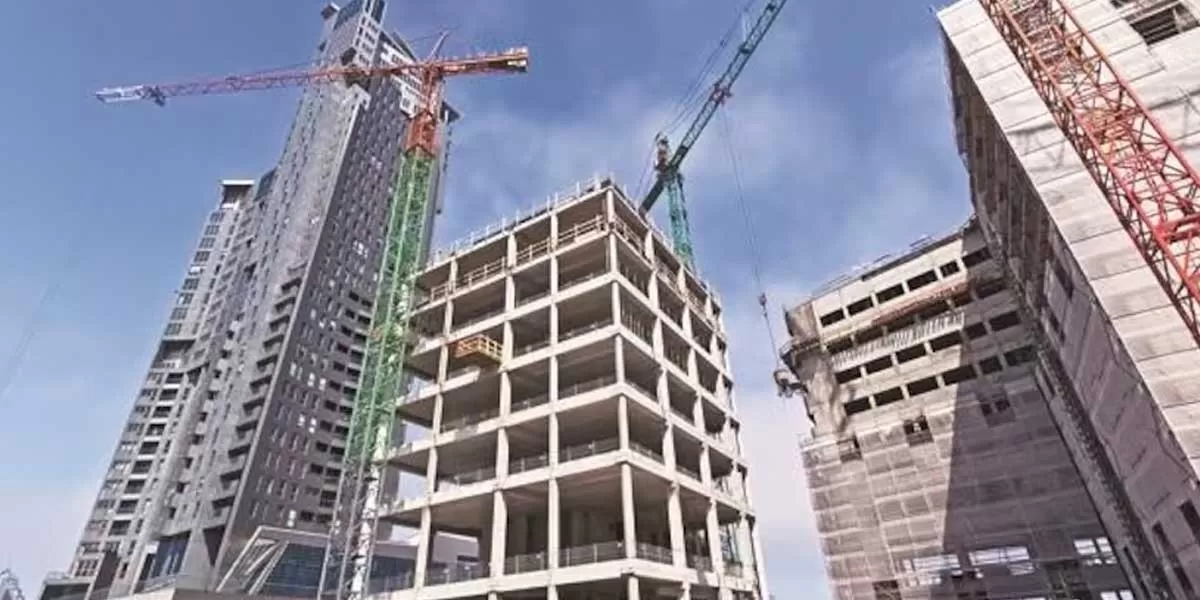The latest data reveals a notable 15.2% escalation in housing prices for under-construction properties during the June quarter, signaling a robust recovery and renewed investor confidence in the real estate market. This surge comes amidst evolving market conditions shaped by factors such as increased construction costs, growing demand-supply imbalances, and shifting consumer preferences post-pandemic.
Developers have been navigating a landscape where rising raw material costs and construction expenses have contributed to the upward trajectory in property prices. Cement, steel, and other essential construction materials have witnessed price hikes, impacting overall project costs. These economic pressures, coupled with sustained demand from homebuyers seeking to capitalize on lower interest rates and favorable buying conditions, have collectively influenced pricing dynamics.
The uptick in under-construction housing prices reflects a broader recovery trend in the real estate sector, which has been gradually rebounding from the pandemic-induced slowdown. Builders are adapting their strategies to align with evolving market realities, focusing on completing existing projects while cautiously launching new developments to meet pent-up demand effectively.
For prospective homebuyers, the rising prices underscore the urgency to make informed decisions amidst a competitive market environment. Factors such as location, amenities, and project completion timelines are becoming increasingly critical in the decision-making process. Real estate analysts suggest that while affordability remains a concern, the current phase presents opportunities for investment growth in selected segments.
Industry experts anticipate continued momentum in the residential property market, supported by government initiatives and policy reforms aimed at bolstering the housing sector. Measures such as reduced stamp duty rates and incentives for affordable housing are expected to sustain buyer interest and developer activity in the coming quarters.
In conclusion, the 15.2% increase in under-construction housing prices reflects a dynamic real estate market poised for growth and adaptation. As stakeholders navigate evolving economic conditions and consumer preferences, the sector's resilience and recovery are set to shape future trends in urban housing development. The latest data reveals a notable 15.2% escalation in housing prices for under-construction properties during the June quarter, signaling a robust recovery and renewed investor confidence in the real estate market. This surge comes amidst evolving market conditions shaped by factors such as increased construction costs, growing demand-supply imbalances, and shifting consumer preferences post-pandemic.
Developers have been navigating a landscape where rising raw material costs and construction expenses have contributed to the upward trajectory in property prices. Cement, steel, and other essential construction materials have witnessed price hikes, impacting overall project costs. These economic pressures, coupled with sustained demand from homebuyers seeking to capitalize on lower interest rates and favorable buying conditions, have collectively influenced pricing dynamics.
The uptick in under-construction housing prices reflects a broader recovery trend in the real estate sector, which has been gradually rebounding from the pandemic-induced slowdown. Builders are adapting their strategies to align with evolving market realities, focusing on completing existing projects while cautiously launching new developments to meet pent-up demand effectively.
For prospective homebuyers, the rising prices underscore the urgency to make informed decisions amidst a competitive market environment. Factors such as location, amenities, and project completion timelines are becoming increasingly critical in the decision-making process. Real estate analysts suggest that while affordability remains a concern, the current phase presents opportunities for investment growth in selected segments.
Industry experts anticipate continued momentum in the residential property market, supported by government initiatives and policy reforms aimed at bolstering the housing sector. Measures such as reduced stamp duty rates and incentives for affordable housing are expected to sustain buyer interest and developer activity in the coming quarters.
In conclusion, the 15.2% increase in under-construction housing prices reflects a dynamic real estate market poised for growth and adaptation. As stakeholders navigate evolving economic conditions and consumer preferences, the sector's resilience and recovery are set to shape future trends in urban housing development.





















